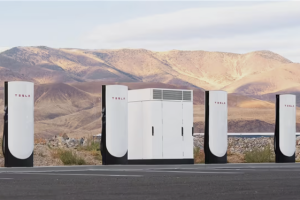July 15, 2024 – A staggering revelation has emerged regarding the colossal energy consumption of tech giants Google and Microsoft, as Michael Thomas’s analysis underscores their respective annual electricity usage at a whopping 24 terawatt-hours (TWh) in 2023, surpassing the total power demands of over 100 nations, including Iceland, Ghana, and Tunisia. This colossal energy footprint underscores the profound environmental implications, yet it is noteworthy that these tech titans’ revenue-generating prowess mirrors their massive energy demands, outshining numerous sovereign states.

Diving deeper, the electricity consumed by Google and Microsoft in 2023 is equivalent to the entire annual energy usage of Azerbaijan, a nation with a population of 10.14 million, and surpasses the power demands of countries like Iceland, Ghana, the Dominican Republic, Tunisia (each consuming around 19 TWh), and Jordan (at 20 TWh). Nevertheless, there are nations, such as Slovakia with a population of merely 5.4 million, that consume more electricity, reaching 26 TWh annually.
This juxtaposition underscores the insatiable thirst for energy by high-tech corporations, with Google and Microsoft’s data centers leaving a tangible environmental footprint. However, when placed in the context of their financial might, a different narrative unfolds.

Google reported revenues of 305.6billionin2023,withitseconomicimpact,encompassingserviceslikeGoogleSearch,GoogleCloud,andYouTube,estimatedatacolossal739 billion. Microsoft, on the other hand, generated $211.9 billion in revenue, and considering the ubiquitous use of its Windows operating system, Office suite, and the myriad online applications hosted on its Azure cloud platform, its economic influence potentially soars into the trillions.
Comparatively, Azerbaijan’s GDP stood at approximately 78billion,Slovakia′sat127 billion, and Iceland’s at a mere $30 billion in 2023. The financial output of Google and Microsoft far surpasses these nations’ GDPs, highlighting the disparity between their colossal financial scale and their equally impressive energy demands.
Amidst concerns over the tech industry’s sustainability and the adoption of renewable energy sources, Google and Microsoft are leading the charge towards a greener future. Google has been a pioneer in renewable energy usage, achieving carbon neutrality since 2007 and aiming for 24/7 carbon-free energy for all its data centers by 2030. In 2023, the company announced continued investments in renewable energy projects, diversifying its portfolio with wind, solar, and other clean energy sources.
Microsoft, too, is committed to achieving carbon negativity by 2030, signifying its intention to remove more carbon than it emits. The company has set ambitious targets for zero waste production and positive water usage by 2030. In 2023, Microsoft expanded its renewable energy contracts to over 19.8 gigawatts, spanning projects across 21 countries. Furthermore, it is actively working to mitigate direct operational emissions and address indirect emissions, particularly those associated with new data centers and hardware components.
As the tech industry continues to evolve, the balance between growth, innovation, and environmental responsibility remains a critical challenge that Google and Microsoft are at the forefront of addressing.












